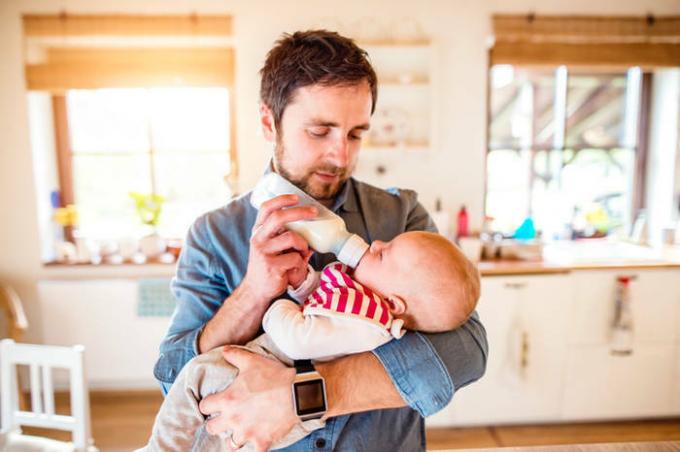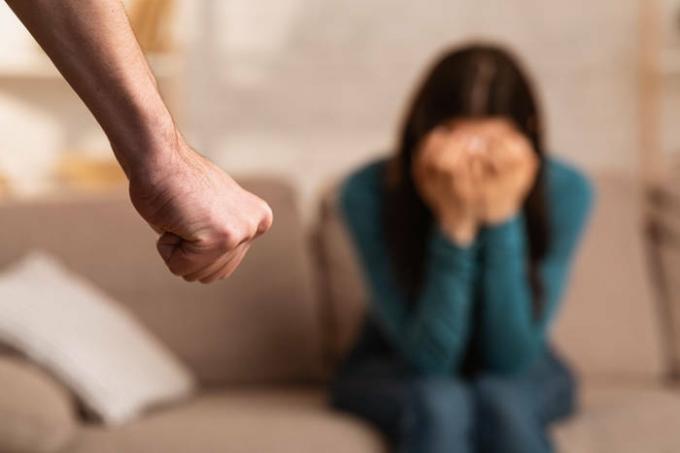Psychologist Lyudmila Petranovskaya spoke about what a good mother should be, about the role of a father in raising children, anxious mother's syndrome, personal boundaries and family abuse
Lyudmila Petranovskaya is one of the first psychologists in the post-Soviet space who gave mothers "Official" permission to take care of themselves and not blame themselves for spending little time on their to kid. She explains in a simple and accessible way that a good mother is, first of all, a happy mother. In her interview for the Yuotube channel "Rumors are circulating", Lyudmila Petranovskaya touched upon many important topics for parents. We have selected the most useful and interesting points of view for you.
How good should a mom be?
“A sufficiently good mother is a mother who is sufficiently accessible to the child. This does not mean that always, and in no case should you be absent for half an hour, even if we are talking about small children. [A good mom] is fairly predictable for a child, not being carried between a lot of attention and aloofness. [A good mom] is reasonably safe — that is, does not offend the child. And responds sufficiently to the basic needs of the child. This is absolutely enough. Everything else - how does anyone succeed. "
Time with a child: is quality or quantity important?

It is important for a child to see and feel that his mother is happy for him / istockphoto.com
“A small child needs more time for a parent or other“ own ”adult to be available. However, being with a child 24 hours a day, hating all this and falling from fatigue is definitely a bad option. Obviously, the child needs more than just your presence as such, the child needs good contact. Again, this does not mean that you look at him adoringly from morning till night and always come up with some kind of entertainment for him. This means that you can go about your business, but respond when the child needs it, and at the same time he sees that you are happy with him. This is good contact.
If a child is raised by one parent […] this is a very big burden. It is very difficult for one parent to stretch out a child if there is no support group. Elementary: got sick, and who will help, who will intercept the child? One adult is enough for one child. The question is, it's hard for an adult. And if there is no partner, it is important to involve family, friends, professionals. So that the parent does not feel that either he or no one. "
What if dad is not interested with the child?

Dad should take part in the care of the common child / istockphoto.com
“If there is a nuclear family (what is called a couple), it looks rather strange. That is, the first three years are not interesting to you. Should your wife be interested? Or do they not ask her whether it is interesting or not? Mom is also not always interested in discussing Peppa Pig or washing her ass. A child needs a certain amount of care and a certain amount of care. This is a child of two, respectively, this leave and care must be somehow divided among themselves, depending on all other circumstances. Who said that it should be great all the time, how interesting?
I don’t understand this story about “doesn’t want” [to raise a child]. If you don't want to, there is only one guaranteed way not to raise children - sleep alone. And there will be no need to wash anyone's ass. Everyone knows where children come from and how everything works, so it is rather strange to have a kindergarten here (I want to - I don’t want to) ”.
Anxious mom: is it okay and what to do about it?

An anxious mom often doesn't notice real reasons for anxiety / istockphoto.com
“Anxiety about having a baby is normal and evolutionarily justified. If with the appearance of the baby, women did not worry long before the appearance of psychologists and guardianship authorities, humanity would not have survived. No anxiety: she gave birth, left under a bush and went about her business. So, first of all, there is no need to fight this anxiety, consider it to be some kind of problem and fault.
Another question is that this anxiety sometimes it overflows its banks and becomes inadequate to those needs that require attentiveness and vigilance. Moreover, very often this is all accompanied by a lack of anxiety where it is really needed.
For example, if you ask parents what they are most afraid of for their children, first of all, some kind of abduction by a pedophile will surface. But kidnapping by a pedophile is statistically extremely rare. For example, a completely different number of children fall out of windows every year. But the same parents who are terrified of being kidnapped by a pedophile may not put braces on the windows. […]
These are the paradoxes of our perception of dangerous and non-dangerous factors. What should be done here? Turn on the head, analyze statistics. To understand that some pictures scare us very much, but statistically the probability of this event is small, and some other real dangers exist, but we sometimes do not attach importance to them.
A separate issue is anxiety immediately after the birth of a child. [For example] panic waking at night with a check, breathing or not breathing [...] If it goes beyond the boundaries, I would recommended to talk to a psychologist, because against the background of hormonal changes, real disturbing disorders. These are all very treatable. The main thing is not to launch it, because then physiological damage to health begins. "
How to teach your child to protect their personal boundaries

Teaching a child about personal boundaries should be respectful of his wishes / istockphoto.com
“A child who is confident that he has the right to want and has the right not to want.. This does not mean that it will always be according to him, but for the very fact that he wants or does not want, no one will blame him - such a child usually somehow copes well with it. Yes, there are situations when he faces bullying, or some perfect aggressive person meets - something that he cannot cope with due to age. Then he must understand that there are parents to whom he can tell about this, and they will come to the rescue.
But in general, we teach a child to respect boundaries when we just tell him how life works. When we say: do not make noise if grandmother is asleep - this is an example when we teach him to respect the boundaries of another person. When we do not grab his drawing from the table, but first we say: can I take a look. When he pulls his hands to our phone, we say: I will not give it, this is my phone. When we ask him for permission to drip his nose. If he doesn't want, we somehow agree, we can even insist, but we don't jump on him, suddenly grabbing him. This is respect for boundaries. When we ask what he wants, what he does not want. When we let him make an order in a cafe on his own, this is the formation of boundaries and examples of how to defend these boundaries. "
Domestic violence: who is to blame and what to do?

Only the abuser is responsible for domestic violence / istockphoto.com
“Anyone can become a victim of abuse, and it is not necessary to have a [similar] childhood experience. This is not true. At the stage of romantic love, we all turn our best sides to each other, and then you can find sides in a partner that no one even imagined. Therefore, it is important here not to reduce everything to the experience of the victim, but still understand that the responsibility lies with the abuser, and no one is immune from getting into such a situation.
First of all, it is important to know what it looks like and what it is called. That this is not about "beats - it means he loves" or "oh, he loves so much that he cannot cope with feelings." And not about the fact that he is poor, unhappy, just very emotional. That there are some things that cannot be done. If a person does something that is impossible over and over again, it is his duty and responsibility to ask for help. Go to a therapist and say: I'm not coping with my feelings. There may be reasons for this, for example, PTSD. But if a person is responsible for his behavior, he asks for help, and does not say: you brought me.
If you understand that ended up in such a relationship, you need to look for support and help, because this is a really dangerous situation. Any abuse tends to escalate, especially in a situation where the victim is trying to leave the relationship. Therefore, first of all, you need to think about who can help you, involve family, friends, specialists. And if a person does not take responsibility for his behavior and is not going to do anything about it, then think about his safety. This is not the case when you need to think about how to maintain a relationship.
You will also be interested to read:
"Until now, women are 'breaking' their breasts": Ksenia Solovey - about myths and three whales of breastfeeding
"Do not be afraid to raise a sissy out of him!": 20 tips for raising a son from Margarita Sichkar

